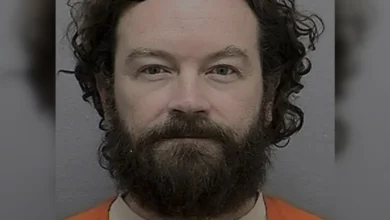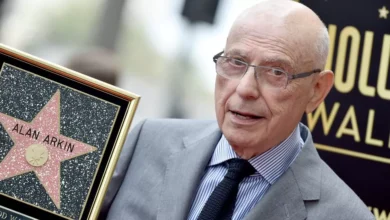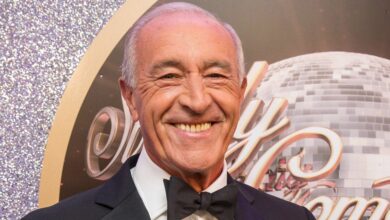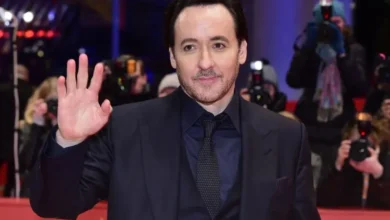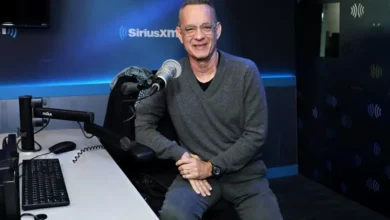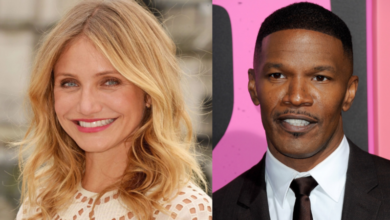Saudi star Fatima Al-Banawi talks about her directorial debut ‘Basma’
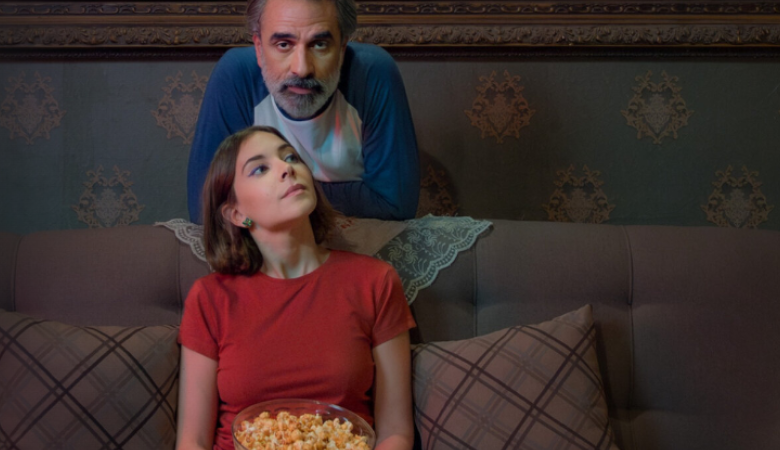
DUBAI: “I really went into cinema — in 2015 with my first feature as an actress — with one intention: to bridge the gap between the arts and social impact and psychology,” Fatima Al-Banawi tells Arab News. “And I was able to come closer to this union when I positioned myself as a writer-director — more so than as an actor.”
Al-Banawi is discussing her debut directorial feature, “Basma,” which launched on Netflix earlier this month. She not only directed the movie, but wrote it (and an original song for the soundtrack) and played the title role — a young Saudi woman who returns home to Jeddah after two years away studying in the States to find that her parents have divorced without telling her after struggling to deal with the mental illness of her father, the well-respected Dr. Adly (played by the excellent Yasir Al-Sasi).
Basma is distraught to learn that her beloved father has moved out and — worse — that most of the family are, at best, reluctant to visit him. She is convinced that all he needs is the love and care of his loved ones. So she moves in with him, against the advice of her mother, Hind (Shaima), brother Waleed (Tared Sindi), and uncle, Hamza (Mohammed Essam). It doesn’t go smoothly.
“My undergrad is in psychology. My father’s a psychologist. My sister’s a psychologist. I have psychology and sociology in my DNA,” Al-Banawi says. “We talk about Sigmund Freud over lunch, you know?”
And so, when she sat down to write her first feature, it was natural that she would choose mental health as its focus.
“Dissonance was a word I found when I started working on ‘Basma.’ I wasn’t familiar with this term: to be in a complete state of, not just denial, but not responding in any way — action or awareness — to what (is obvious),” she says. “I felt it around me everywhere; things that were brushed under the carpet for years and years until they piled up and a person or a family could not handle them anymore; couldn’t fix the situation anymore. It becomes too big of an issue. Then the outcomes begin to unfold and, in turn, extend roots into society.
“There were different personality disorders or mental illnesses that I was curious about investigating, like OCD, or depression — anti-depressants are very widespread in my community — and I felt like maybe these issues could be addressed in cinema.”
In the end, though, she decided against making depression Dr. Adly’s illness.
“I wanted to challenge myself with something that was difficult to translate visually,” she explains. “A paranoid or schizophrenic case is not like a case of depression. There’s a cinematic language for depression — you can put a person in a dark room, for example. But what Dr. Adly suffers from is these internal thoughts or assumptions. That’s very difficult to translate visually, but I wanted to (do it) because I felt that it was widespread — this was something that was really happening (around the world).”
Al-Banawi was acutely aware that the portrayal of mental illness in cinema hasn’t always been successful.
“It turns me off so much, when they make it seem like a person with an intellectual disability,” she says. “Someone can have a severe mental illness and seem incredibly normal — more normal than you or me; it really doesn’t manifest physically. It’s an internal process. This is why mental illness is such a difficult topic, because you’re, like, ‘What is normal? What is not normal?’ Yasir really had to understand that dichotomy between Dr. Adly’s internal scenario versus how he behaves externally. I told him, ‘Just think of yourself as a difficult father. Like, something triggers you and all of a sudden you snap, but otherwise, you’re actually very cool. You’re decent, you’re pleasant, you’re sweet and you’re charismatic.’”
It was vital, clearly, to get the casting just right, and not just for Dr. Adly. As Al-Badawi explains: “Mental illness is a family matter. It’s not just on the patient themselves, it’s on their community and how they accept and deal with it.”
The obvious on-screen chemistry between the actors — even though for many of them it was their first experience of acting in front of a camera — shows how well the casting process worked.
“The most important element was to create a believable, cohesive family. That was one of the main issues,” Al-Banawi says. “The second thing was that — although I recognize that a lot of amazing actors and actresses have (emerged in Saudi Arabia) in the past couple of years — as a director, I wanted to see fresh faces. It’s beautiful to see these talents who weren’t given a chance before, or didn’t even see themselves taking this path. Honestly, this whole cast was a blessing.”
To ensure that family “cohesiveness,” Al-Banawi scheduled three weeks of rehearsals before shooting.
“I wasn’t going to roll a camera before that. I wanted to get closer to the actors as an actress — not only as a director,” she says. “I wanted to play with them and do improv with them and really come into character with them as Basma, not as Fatima. I couldn’t have done that without some playtime — that’s what I called it; we wanted to play before the real deal. That was really important for me. It was fun to watch this energy growing.”
The “playtime” experience included getting the crew to perform some of the roles at a readthrough too. “I’m a nerd,” she says with a laugh. “OK, we were paying them, but I really wanted them to be immersed in the story we’re telling, and to choose to tell it. And I wanted them to have one hell of a good time.”
The whole process — particularly getting people together to record the song that she wrote for the end of the movie — was something of a throwback, as Al-Banawi tells it.
“Pre-industrialization of cinema in Saudi Arabia, this was how things worked,” she says. “We weren’t concerned with the financials or anything; we were just concerned with whether we’d want to be part of something. And that’s how beauty unfolded. Of course, now, with all the support and recognition, it’s like the passion multiplied by ten.”
And “Basma” really was a passion project for Al-Banawi.
“The mental-health aspect is something I’m driven by, of course, but I also feel that it’s important for films to be personal and relatable and reflective of social set-ups,” she says. “As much as I admire — and am a fan of — action and thrillers and comedies, I like to have some family drama amidst those too. Something close to reality. That’s why I want to make films: to invite children who are like myself once upon a time to watch films like the ones that I grew up watching — films that had a subtext or meaning, but that I really engaged with. I learned so many principles from them.”


